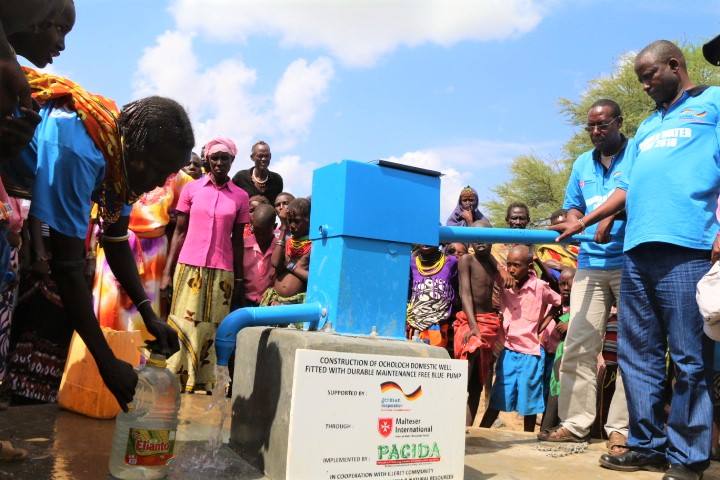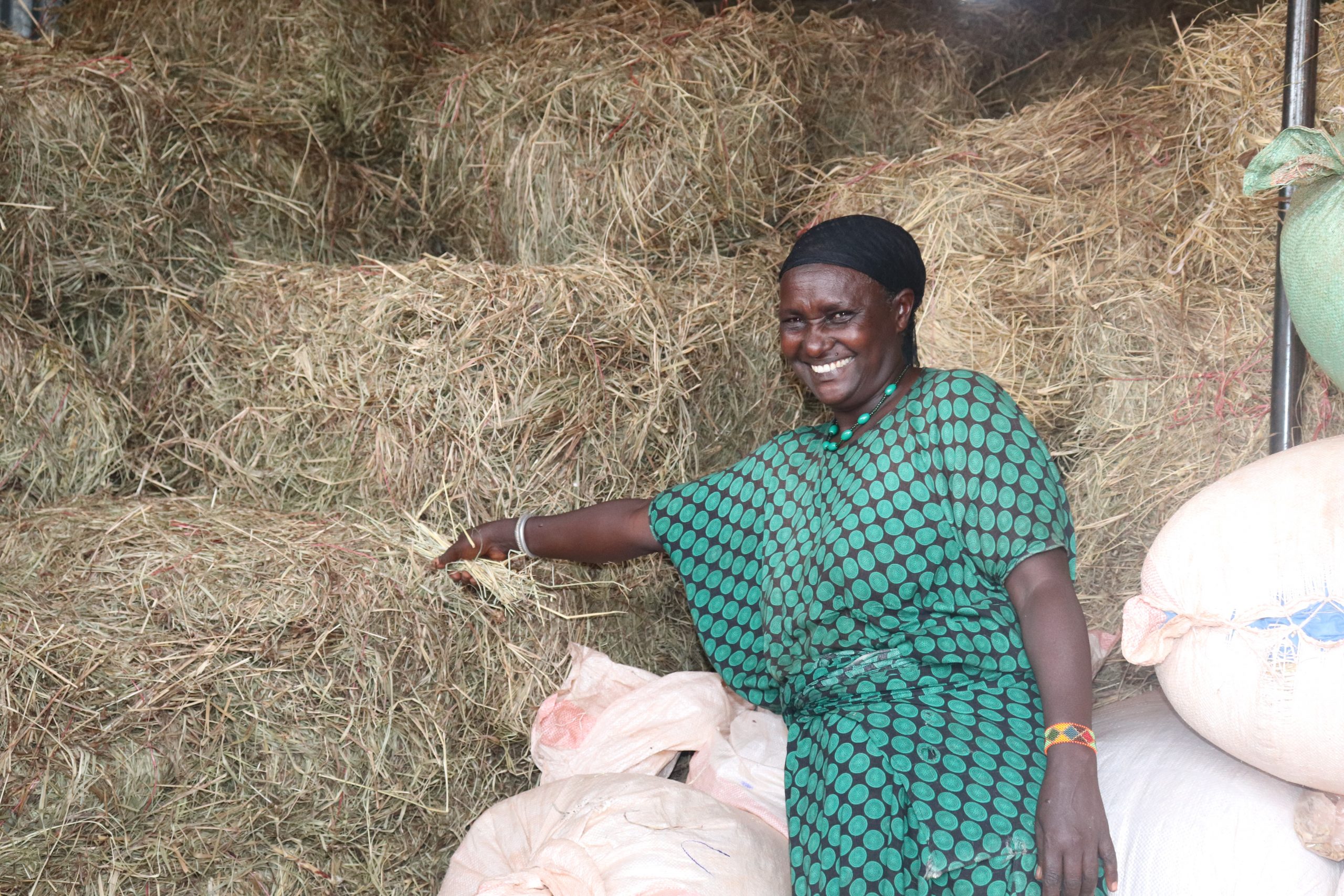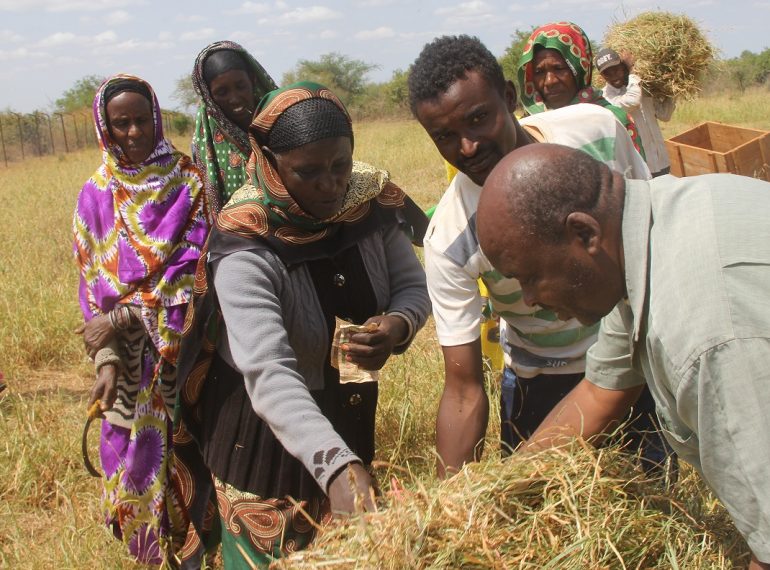
Marsabit-Kenya: Seen as the worlds’ worst migratory pests, desert locust swarms descended in Marsabit, decimating crops and devouring grazing land, subsequently affecting the source of livelihoods in a community that depends on livestock for survival. Paulina, 52 years old and mother of six from Yomoo in Loiyangalani, knows too well the compounding effects of the desert locusts. “When the locusts came, they were flying all over, they landed on the grazing fields, feeding on the grass” says Paulina, adding that the locust infestation left nothing for her goats to feed on. The locust invaded her village earlier this year, around February 2020, just when they were recovering from the effects of floods that hit the region in the months of October and November of 2019. As the pastoralist communities in the region are recovering from the multiple threats, including the…

[pdf-embedder url="http://pacida.org/wp-content/uploads/2020/11/Tender_2_Advertisement-for-food-items-1.pdf" title="Tender_2_Advertisement for food items-1"]

How Village Savings and Loans Concept is transforming businesses in Marsabit, Kenya Standing in front of her small mud retail-shop, Halima Adan, stares at her grandchildren play hide-and-seek, there are usually not many customers visiting her shop at this time of the day, so she takes time to engage with the kids. Life took a new turn for Halima, 50 years old-widow residing in Kinisa Village in the north eastern county of Marsabit, when she was given a business starter kit worth Ksh.15, 000 by Pastoralist Community Initiative and Development Assistance (PACIDA). She then took a loan of Ksh. 15,000 from Kinisa Village Savings and Loans Association (VSLA) to supplement her starter kit, and she started a provision shop. “Prior to venturing into the retail shop business, my only source of income was selling goat milk,” she says. “The income…

Hydro-geological Assessment Report for the Pastoralist Community Initiative and Development Assistance (PACIDA) Hydrogeological report for Bubisa Borehole

Jaldesa, Marsabit-Kenya: The front yard of Fatuma Molu’s home is a hive of activity. To the center left, green leafy kales sprout from a kitchen garden adjacent to a cows’ shed with mooing calves and a conspicuous silo-like structure with bales of fodder. At the bottom of a gentle slope beyond the compound lies a 10 acre fenced rangeland fodder- farm; visibly, a group of youth is preparing the land ready for another season of fodder planting. Fatuma, 55 years and a widow is the chairperson of Jaldesa Sauti Moja Group - a community-based organisation with 40 members (38 female and 2 male). The group has found passion in fodder farming and its members are now reaping the benefits of selling hay and grass-seeds. “We sell a bale of hay for Ksh 300 to non-members of the group and Ksh…

“We expect to harvest 60 bales of hay per acre from the rehabilitated rangeland. We are reaping double benefit by selling a kilo of grass seeds at 1,000 Kenya Shillings (10 US Dollars) while a bale of hay weighing 8kg is sold at 300 Kenya Shillings,” says Fatuma, chairperson of Jaldesa Sauti Moja fodder production group from Badassa. Jaldesa Sauti Moja Women group at Badassa was identified and supported through training, capital, fencing materials and grass seeds. This is one of the most proactive fodder production groups in Marsabit County with 40 active members who are very passionate about fodder production. A total of 675 kilograms of grass seeds were distributed to 115 willing members from three different groups. The group has already started harvesting seeds and hay. Fodder is available for sale and use during stress period. “We harvest…

“My life has stabilized significantly since the cash support activity began. I have paid my debts and I am able to buy food and water form my family,” says Roba Wario (28) who is one of the beneficiaries of emergency cash transfer to vulnerable and drought-affected communities of Marsabit County of Kenya. Roba is a mother of three children. She was born in Bubisa Ward of Marsabit County, this is where she still lives. She does not have any formal job. Her children need food but she can only afford one meal a day for them. She has received a cash allocation of 3,000 Shillings (equivalent of about 30 US Dollars). “Without the cash support, we would be sleeping hungry,” she says. On this day, she has bought maize flour at 70 shillings (0.7 US dollar) and pasta at 70…

A public forum on climate change and adaptation was recently held in Marsabit town bringing together various self-help groups, local and county authorities, religious groups and residents of Marsabit town. The event enabled various stakeholders in Marsabit County of Kenya to come together and discuss pertinent issues relating to drought and climate change adaptation. In attendance was Kisilu Musya a climate change activist and global campaigner on climate issues affecting farmers in Kenya and East Africa. “We are all actors in the climate adaptation struggle. Our little activities combined contribute immensely in determining the direction our climate will be taking affecting future generations,” Kisilu explained to the audience. East Africa is particularly vulnerable from the negative effects of climate change. In Kenya, northern counties of Marsabit, Mandera and Turkana lie in the arid zones which face increasingly dry conditions linked…
Visit Us
Marsabit Kenya
pacida@pacida.org
Call Us
+254 (0) 20 265 6947
About Pacida
The Pastoralist Community Initiative and Development Assistance (PACIDA) is a development and relief organisation that empowers pastoralist communities through sustainable community-driven development interventions.
PACIDA was founded in 2008 by local scholars and development practitioners who were concerned about the huge and widening humanitarian needs, deepening vulnerabilities and huge development gap in its target region.
Contact us
Postal Address: PO Box 333-60500, Marsabit, Kenya.
Email: pacida@pacida.org
Hotline: +254 (0) 20 265 6947

